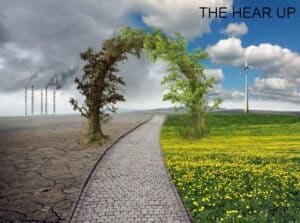Latest News
Effects of climate change on tourism

Climate change in tourism
Climate change is a significant and permanent variation in global climate conditions (that is, an increase or decrease in temperature); It can be caused by natural causes, although experts say that the main trigger is human activities related to the emission of greenhouse gases, such as carbon dioxide.
The greenhouse effect is a phenomenon that generates a general increase in the planet’s temperature, caused by the concentration of gases in the atmosphere, mainly carbon dioxide.
How does this affect tourism?
We are talking about a vicious circle when it is assured that tourism is one of the sectors that contributes the most to global warming, which in turn affects tourist destinations in the world since it alters temperatures and produces natural phenomena that could affect security. of the tourist.
The main CO2 (carbon dioxide) emission factors occur in taxis used by tourists, with hotel air conditioning, motorized water activities, air transport, among others.
Studies show that temperatures could increase between 1.8 and 4 degrees Celsius at the end of the 21st century.
The effects of climate change can be seen mainly in coastal areas, mountainous places, or on small islands, places that are, in turn, the main generators of economic spillover in tourism.
If the conditions of climate change continue to advance, tourists will stop going to their usual destinations, which could lead to the closure of businesses and the general loss of jobs, this would eventually lead to the decline of the tourist destination.
Another consequence could be the risk factor caused by natural phenomena such as hurricanes, cyclones, tidal waves, and the direct impact it would have on hotels, restaurants and other tourist infrastructure.
The rise in sea level would damage coastal areas, cause coastal erosion, loss of beaches, and force governments to spend large amounts of money to cope with these phenomena.
Extreme temperatures, the change in the speed of the winds, poor air quality, solar radiation and humidity, would make destinations uncomfortable places to visit, tourists would move away and seek new options.
It is also possible to face impacts that generate changes in land use and the loss of archaeological sites or natural areas and their biodiversity.
The World Tourism Organization in coordination with other organizations has worked on conventions and policy development that help mitigate climate change by promoting actions ranging from the use of renewable energy to limiting the use of airplanes and encouraging the use of the railway.
You might think that action started late, the truth is that something is already being done, but this is not enough, if you want a real change, each traveler must become aware of their responsibility and act in favor of the planet and tourism.
What is climate change?
The planet’s climate has undergone constant changes throughout geological time, including significant fluctuations in global mean temperatures.
Current warming is occurring, however, faster than any past phenomenon. It has become clear that most of the warming recorded over the past century has been caused by humans by emitting heat-retaining gases – commonly called greenhouse gases – to meet the energy needs of modern life. We do this by burning fossil fuels, agriculture, land use, and other activities that cause climate change. Greenhouse gases are at their highest level in the last 800,000 years. This rapid increase is a problem because it is changing our climate at too high a rate for living beings to adapt to it.
Climate change not only entails an increase in temperatures but also extreme weather events, sea-level rise, and changes in populations and habitats of wild flora and fauna, among other effects.

What effects does climate change have?
The effects of climate change are already being felt and will worsen. Global warming has already reached approximately 1 ° C from pre-industrial levels. Every half-degree (or even less) of global warming counts.
It is important to remember that none of the lists of effects of climate change is exhaustive. It is very likely that heat waves occur more frequently and last longer, and that precipitation becomes more intense and frequent in many regions. The oceans will continue to heat and acidify, and the global mean sea level will continue to rise. All of this will have – and is already beginning to have – a devastating impact on human life.
The urgent need to tackle climate change has become even more apparent with the publication, the Intergovernmental Panel on Climate Change (IPCC). In it, the IPCC warns that, if we want to avoid the catastrophic consequences of global warming, we must not achieve the temperature rise of 1.5 ° C from pre-industrial levels, or at least not exceed it. The report presents the considerable differences between the hypothetical situations of increases of 1.5 ° C or 2 ° C.
Sebastian was born and raised in the busy city of Abbottabad. As a journalist, Saad Mushtaq has contributed to many online publications including the PAK Today and the Huffing Post. In regards to academics, Saad Mushtaq earned a degree in business from the Abbottabad UST, Havelian. Saad Mushtaq follows the money and covers all aspects of emerging tech here at The Hear Up.Thanks










